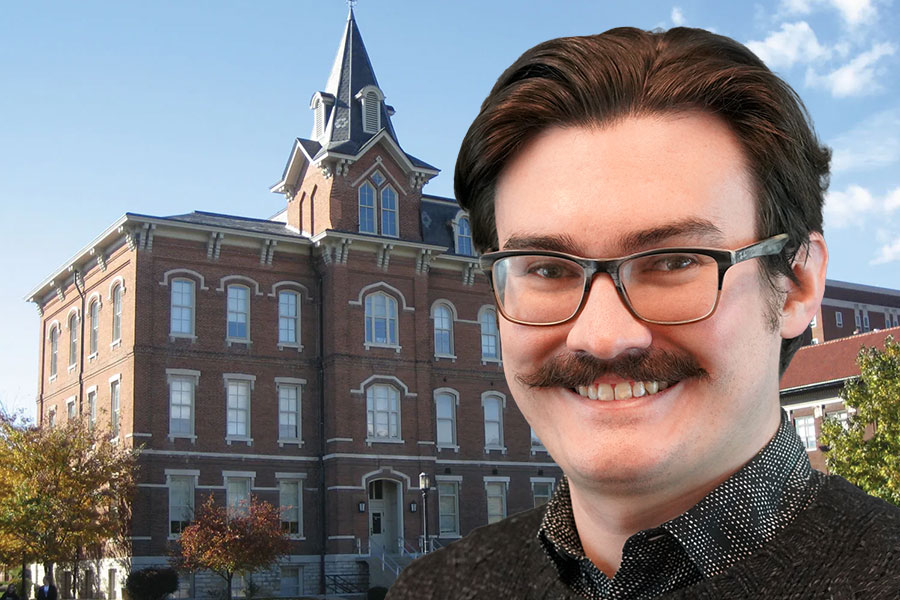PhD Student Highlight: Lazlo Stepback
Lazlo Stepback: Teaching, Research, and Advocacy in the Making of an Ethical Engineer
Growing up near Boulder, Colorado, Lazlo Stepback began his path in engineering at the Colorado School of Mines, where he earned his BS in Chemical and Biochemical Engineering. A transformative moment came through a McBride Honors Program course taught by Purdue alumnus Qin Zhu, where discussions on engineering and Confucian ethics sparked a deep interest that ultimately redirected Lazlo’s academic trajectory.
Lazlo joined Purdue’s Engineering Education PhD program as a direct-admit student in 2020—right in the midst of the pandemic. Starting during COVID made it difficult to establish balance, and the structure of a “9-to-5” work rhythm was something he had to grow into rather than something he arrived with. That experience is now a cornerstone of his advice to new students: treat the PhD like a job early on to maintain balance and avoid burnout.
Under the guidance of his advisor, Dr. Brent Jesiek, Lazlo has built a research agenda centered on a question that sits at the heart of engineering practice: How do students and early-career engineers construct the relationship between their personal morality and engineering ethics—and how does that construction evolve over time? His dissertation explores this relationship through a multi-year longitudinal study, investigating how ethical understanding develops both during college and in the early professional years.
Lazlo’s analytical work has taken him through several research experiences—beginning with the Explorer program and contributions to the ER2 project, and including a small summer project involving data analysis connected to Engineers Without Borders. His primary research appointment is with Dr. Matt Ohland on the ASPIRE project, where he contributes to engineering workforce development for future electric vehicle charging infrastructure. Though focused on research rather than hands-on training, he works on the systems and insights needed to prepare the next generation of technicians and engineers.
Teaching, however, is where Lazlo feels the greatest sense of fulfillment. For the past two years, he has served as an Adjunct Faculty member at Ivy Tech Community College, where he teaches thermodynamics—a course he will teach for the third time this spring. Applying what he’s learned in the PhD program to help community college students master challenging technical concepts is, in his words, what “fills my soul with joy.”
Beyond the classroom and the lab, Lazlo is active in graduate student advocacy. He serves as the Engineering Education Department Steward for GROW, Purdue’s graduate worker organization whose central mission is to unionize graduate student workers. In this role, he is the point of contact for ENE students interested in unionization efforts and helps advance conversations around graduate labor rights.
For Lazlo, Purdue’s Engineering Education program stands out not only for its prestige, but for its community—a network of scholars pushing the field forward in ways no other department matches. “You feel like you’re part of something special here,” he reflects, a sentiment shaped by both the mentorship he has received and the impact he is already making.

